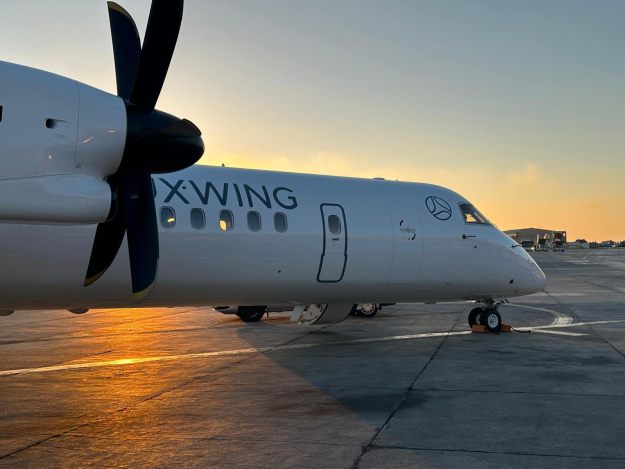
If you’ve ever dreamed of taking to the skies and becoming a pilot, then the GI Bill Flight School Programs might just be your ticket to turning that dream into a reality. These programs offer veterans the opportunity to pursue a career in aviation by providing financial assistance for flight training and education. Whether you’re a veteran looking to start a new chapter in your life or have always had a passion for aviation, the GI Bill Flight School Programs can open doors and help you soar to new heights.

Flight School Program Benefits
1. What is the GI Bill Flight School Program?
The GI Bill Flight School Program is a government initiative that provides financial assistance to eligible veterans and service members to pursue flight training programs. This program has a rich history rooted in the broader GI Bill, which was established in 1944 to support veterans’ education and career development. The GI Bill Flight School Program aims to enable veterans to enter the aviation industry by covering the costs of flight training and related expenses.
1.1 History of the GI Bill
The GI Bill, officially known as the Servicemen’s Readjustment Act of 1944, was a groundbreaking piece of legislation introduced after World War II. It aimed to provide comprehensive support to returning veterans, including funding for education, vocational training, and home loans. The GI Bill helped millions of veterans reintegrate into civilian life and build prosperous futures. Over the years, the GI Bill has undergone several updates and expansions to adapt to the changing needs of veterans.
1.2 Purpose and Benefits of the Program
The main purpose of the GI Bill Flight School Program is to provide financial assistance to veterans and service members who aspire to become pilots or pursue careers in the aviation industry. By covering the costs of flight training, tuition, and other qualified expenses, the program opens doors to individuals who may otherwise lack the financial means to pursue their aviation dreams. The benefits of the program go beyond financial assistance, as it also offers support for transitioning into civilian life and accessing a wide range of career opportunities.
1.3 Eligibility Criteria
To be eligible for the GI Bill Flight School Program, individuals must meet certain criteria. Generally, eligibility is determined by the length and type of military service, discharge status, and other factors. Each GI Bill program has its own set of specific requirements, so it is important to thoroughly review the eligibility criteria for the particular program you are interested in. Typically, the program is available to veterans, active-duty service members, and selected reserve members who meet the necessary requirements.
2. Types of GI Bill Flight School Programs
There are different types of GI Bill Flight School Programs that cater to the needs of various individuals. These programs vary in terms of eligibility criteria, benefits, and the level of support they offer. It is essential to understand the differences between each program before making a decision.
2.1 Post-9/11 GI Bill Flight Training
The Post-9/11 GI Bill Flight Training is a program specifically designed for individuals who served on active duty after September 10, 2001. This program offers financial assistance for flight training, up to the maximum allowed by law. It also provides a Monthly Housing Allowance (MHA) based on the location of the flight school and the number of credit hours pursued. Additionally, eligible participants may receive a book and supply stipend.
2.2 Montgomery GI Bill-Selected Reserve (MGIB-SR) Program
The Montgomery GI Bill-Selected Reserve Program is tailored for members of the Selected Reserve, including the Army Reserve, Navy Reserve, Air Force Reserve, Marine Corps Reserve, and Coast Guard Reserve, as well as the Army National Guard and Air National Guard. This program provides financial assistance for flight training and other approved courses. The benefit amount is subject to certain limitations and varies based on the individual’s length of service and eligibility category.
2.3 Montgomery GI Bill Active Duty (MGIB-AD) Program
The Montgomery GI Bill Active Duty Program is available to veterans and service members who have contributed to the MGIB Active Duty program while on active duty. The program provides financial assistance for flight training, along with other education and training programs. The benefit amount depends on factors such as the length of service, enrollment status, and the type of flight training pursued.
How To Enroll In Flight School
3. How to Apply for the GI Bill Flight School Program
Applying for the GI Bill Flight School Program requires several steps to ensure a smooth and successful process. It is important to thoroughly understand and complete each step to maximize your chances of qualifying for the program.
3.1 Obtaining a Certificate of Eligibility
Before applying for the GI Bill Flight School Program, you must first obtain a Certificate of Eligibility (COE). This document serves as proof that you meet the eligibility requirements for the program. To obtain the COE, you will need to complete and submit the appropriate application form to the Department of Veterans Affairs (VA). The COE will be issued once your eligibility has been verified, and it will detail the benefits you are entitled to receive.
3.2 Selecting a Flight School
Choosing the right flight school is a crucial step in your journey towards becoming a pilot or advancing in the aviation industry. When selecting a flight school, consider factors such as accreditation, reputation, quality of instruction, and the specific flight training programs they offer. It is also important to ensure that the school you choose is approved by the VA to accept GI Bill benefits. The VA provides a search tool on its website to help you find approved flight schools.
3.3 Submitting an Application
Once you have obtained your COE and selected a flight school, you are ready to submit your application for the GI Bill Flight School Program. The application process may vary depending on the specific GI Bill program you are applying for. It typically involves completing the necessary forms, providing supporting documentation, and submitting everything to the VA for review. Be sure to carefully follow the instructions provided by the VA to avoid any delays or complications.
4. Funding and Expenses Covered by the GI Bill
The GI Bill Flight School Program offers financial assistance to cover various expenses associated with flight training. Understanding what costs are covered can help you plan your finances effectively and make the most of the benefits provided.
4.1 Tuition and Fees
One of the primary expenses covered by the GI Bill Flight School Program is the tuition and fees associated with flight training. The program typically pays directly to the flight school on your behalf, reducing the financial burden of paying for training out of pocket. However, it is important to note that there may be certain limitations and maximum benefit amounts that apply, depending on the specific GI Bill program you are utilizing.
4.2 Flight Training Costs
In addition to tuition and fees, the GI Bill Flight School Program can help cover other flight training costs. This may include expenses such as aircraft rental fees, fuel costs, instructor fees, and any required training materials or equipment. Understanding which costs are eligible for reimbursement is essential to avoid any unexpected financial obligations.
4.3 Housing Allowance
One of the valuable benefits provided by the GI Bill Flight School Program is the Monthly Housing Allowance (MHA) for eligible participants. The MHA is designed to assist with the cost of housing and is calculated based on the location of the flight school and the number of credit hours pursued. The amount of the MHA may vary depending on your enrollment status and the specific GI Bill program you are utilizing.
4.4 Books and Supplies
The GI Bill Flight School Program also covers the cost of books and supplies required for flight training. This benefit ensures that you have access to the necessary resources without incurring additional expenses. The exact amount provided will depend on the specific GI Bill program you are utilizing.

5. Benefits and Advantages of the GI Bill Flight School Program
The GI Bill Flight School Program offers numerous benefits and advantages to veterans and service members pursuing a career in aviation. Understanding these benefits can help you make an informed decision about utilizing the program and inspire confidence in your chosen path.
5.1 Career Opportunities
By participating in the GI Bill Flight School Program, you gain access to a wide range of career opportunities in the aviation industry. The demand for skilled pilots and aviation professionals is constantly growing, and this program can help you develop the necessary skills and qualifications to enter the field. Whether you aspire to become a commercial pilot, a flight instructor, or pursue other aviation-related careers, the GI Bill Flight School Program can provide the foundation for a successful career.
5.2 Skill Development
Flight training is not only a means of obtaining a pilot’s license but also an opportunity to develop a wide range of valuable skills. Through the GI Bill Flight School Program, you will receive comprehensive training in areas such as aviation safety, aircraft systems, navigation, and communication. These skills are not only applicable in the aviation industry but can also be transferrable to various other sectors, providing you with a competitive edge in the job market.
5.3 Transition Assistance
For veterans transitioning from military service to civilian life, the GI Bill Flight School Program offers valuable support. The program provides a pathway for veterans to pursue a new and fulfilling career in the aviation industry, easing the transition process. The financial assistance and career opportunities provided by the program can help veterans establish themselves in the civilian workforce and start a successful post-military life.
5.4 Networking and Connections
Participating in the GI Bill Flight School Program allows you to connect with fellow students, instructors, and professionals in the aviation industry. These networking opportunities can be invaluable as they can lead to mentorship, industry insights, and potential job opportunities. Building a strong professional network in the aviation industry can open doors and accelerate your career growth.
6. Limitations and Considerations of the GI Bill Flight School Program
While the GI Bill Flight School Program offers numerous benefits, it is important to be aware of its limitations and considerations. Understanding these factors can help you make informed decisions and navigate any potential challenges along the way.
6.1 Time Limitations
Most GI Bill programs have time limitations within which benefits must be used. It is essential to carefully review the specific time limitations associated with the program you are utilizing for flight school. Failing to complete your training within the allotted timeframe may result in the loss of your remaining benefits.
6.2 Academic Requirements
Flight training programs often have academic requirements that must be met, and the GI Bill Flight School Program typically requires participants to maintain satisfactory academic progress. It is important to understand and meet these requirements to continue receiving benefits and successfully complete your flight training.
6.3 Flight School Approval
To be eligible for GI Bill benefits, the flight school you choose must be approved by the VA. It is crucial to thoroughly research and select a flight school that meets the necessary approval criteria. The VA provides a search tool on its website to help you identify approved flight schools in your area.
6.4 Program Changes and Updates
It is essential to stay informed about any changes or updates to the GI Bill Flight School Program. The program may undergo modifications over time, including changes to eligibility criteria, benefit amounts, and other important factors. Staying updated can help you make the most of the program and ensure that you are always aware of any new requirements or opportunities.
7. Success Stories of GI Bill Flight School Graduates
The success stories of GI Bill Flight School graduates can provide inspiration and insight into the potential opportunities and career paths available in the aviation industry. These stories highlight the transformative power of the GI Bill Flight School Program and the positive impact it has had on the lives of individuals who have pursued their aviation dreams.
7.1 Real-Life Examples
One example of a success story is John, a retired Army veteran who utilized the Post-9/11 GI Bill Flight Training program to become a commercial pilot. Despite having no prior aviation experience, John was able to fulfill his lifelong dream of flying thanks to the financial support provided by the program. After completing his flight training, John successfully transitioned into a career as a commercial pilot and has been flying for a major airline for several years.
7.2 Career Paths
The career paths available to GI Bill Flight School graduates are diverse and encompass various roles within the aviation industry. Some graduates choose to become commercial airline pilots, while others may pursue careers as flight instructors, corporate pilots, or aviation management professionals. Additionally, the skills and qualifications gained through flight training can open doors to other related careers, such as aviation safety specialists or aircraft maintenance technicians. The possibilities are vast, and the GI Bill Flight School Program serves as a launchpad for individuals to explore and succeed in their chosen aviation career path.
8. Frequently Asked Questions (FAQs)
Understanding the answers to commonly asked questions can provide clarity and address any concerns or uncertainties you may have about the GI Bill Flight School Program. Here are a few frequently asked questions and their answers:
8.1 How long does it take to complete flight school through the GI Bill?
The duration of flight school can vary depending on the specific training program and the individual’s availability and progress. On average, it may take around 6-12 months to complete flight training and obtain a private pilot’s license. More advanced training, such as instrument rating or commercial pilot certification, may require additional time.
8.2 Can I use the GI Bill for pilot license training?
Yes, the GI Bill Flight School Program can be used to finance pilot license training. The program covers approved flight training programs, which often include the necessary training to obtain a private pilot’s license, instrument rating, and sometimes even commercial pilot certification.
8.3 Do I need prior military experience to use the GI Bill for flight school?
No, prior military experience is not always required to utilize the GI Bill for flight school. The specific eligibility criteria for each GI Bill program may vary, but generally, veterans, active-duty service members, and selected reserve members can be eligible for the GI Bill Flight School Program. It is important to review the eligibility requirements for the specific GI Bill program you are interested in.
8.4 Are there any additional benefits available for veterans in flight school?
In addition to the financial assistance provided for flight training, veterans in flight school may have access to other benefits. This can include healthcare benefits through the VA, as well as potential educational and career counseling services. It is advisable to reach out to the VA or the flight school’s student services department to explore all available benefits.
9. Tips for Success in GI Bill Flight School Programs
While the GI Bill Flight School Program offers valuable support, success ultimately depends on your dedication, effort, and approach to your training. Here are some tips to help you make the most of your GI Bill Flight School Program experience:
9.1 Planning and Organization
Develop a clear plan for your flight training journey, including the specific ratings and certifications you aim to achieve. Create a schedule, set milestones, and organize your training sessions to make the most efficient use of your time and benefits. Planning and organization will help you stay on track and make progress towards your goals.
9.2 Setting Realistic Goals
Set realistic and achievable goals for your flight training. Understand that becoming a pilot requires dedication, practice, and continuous learning. Celebrate small victories along the way and embrace setbacks as opportunities for growth. By setting realistic goals, you can maintain motivation and ensure a positive learning experience.
9.3 Seeking Mentors and Support
Connect with experienced aviation professionals, instructors, and fellow students who can serve as mentors and sources of support. Building relationships with individuals who have already embarked on successful aviation careers can provide invaluable guidance, advice, and encouragement throughout your flight training journey.
9.4 Networking within the Aviation Industry
Networking is a powerful tool for career development, and the aviation industry is no exception. Attend aviation conferences, seminars, and industry events to expand your professional network. Engage with aviation professionals on social media platforms and join aviation organizations or associations. Networking can open doors to job opportunities, internships, and further career advancement.
10. Conclusion
The GI Bill Flight School Program offers veterans and service members a unique opportunity to pursue their passion for aviation and embark on fulfilling careers in the industry. With financial assistance, support services, and a pathway to various aviation professions, this program serves as a launching pad for veterans to transition into civilian life and achieve their aviation dreams. By understanding the program’s benefits, eligibility criteria, and requirements, aspiring aviators can make informed decisions and maximize their potential for success in the GI Bill Flight School Program.


